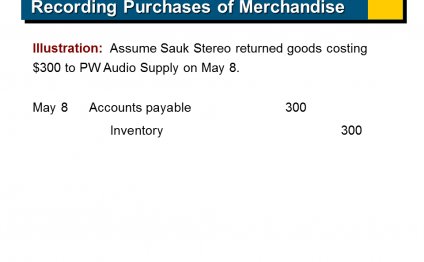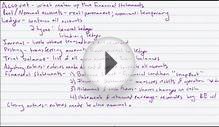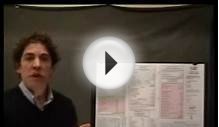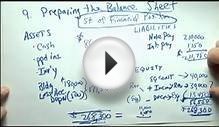
Financial Accounting Lessons

I've searched the web for good free bookkeeping and accounting tutorials and courses and came to the conclusion that they're hard to find so this is my attempt to try and fill the void. What qualifies me to attempt this task ? I guess you can tell it's not my fancy dress code. I have over 30 years experience in business and even taught at a small business college for a couple of years. My method of passing on knowledge is to make the subject easy to understand and to use simple examples and terminology to illustrate the concepts being presented. If you're anything like me I learn a lot easier when I can see an example of what we're talking about. Tell me and show me too. This free bookkeeping tutorial and course is geared to business owners, managers, and individuals who have not had any formal bookkeeping training or on the job experience and need or want to learn the basics of bookkeeping. In other words, this tutorial is for beginners (newbies) or those needing a quick refresher and is only an introduction into the world of accounting. They say a little knowledge is a dangerous thing. Well my goal is to make you dangerous. Tutorial Navigation
Additional Needs
What's Covered ? This Introduction discusses the types of business organizations, types of business activities, users of financial information, bookkeeping systems, accounting rules, and the cash and accrual basis of accounting. Lesson 1 The Bookkeeping Language introduces you to some of the terminology and definitions used in the accounting and bookkeeping language. Lesson 2 Property and Property Rights explains Property & Property Rights, the Accounting Equation, double entry bookkeeping, and how business transactions affect the equation. Lesson 3 Debits and Credits introduces and explains Debits and Credits and how they affect the Accounting Equation and are used to record business transactions. Lesson 4 Recording Business Transactions explains and uses examples to illustrate how business transactions are properly analyzed, recorded, and summarized. Lesson 5 The General Ledger and Journals explains what General Ledger and Journals are, how they're used, and what bookkeeping purposes they serve. Lesson 6 Financial Statements explains what financial statements are, how they're created, and how they're used. Lesson 7 Review of Major Concepts reviews the major definitions, concepts, and bookkeeping records previously discussed and necessary for an understanding of bookkeeping. Introduction |
YOU MIGHT ALSO LIKE



Share this Post
Related posts
Financial Accounting Solutions
Reducing total financial department administration costs while enhancing service levels and transparency is a critical goal…
Read MoreFinancial Accounting Careers
As a financial accountant, you may choose to work in public accounting (doing jobs for multiple business clients) or private…
Read More










